What is "The Future"?
For purposes of this blog, when I say "the future" with a small "f" I mean just five minutes from now, an hour from now, tomorrow, next week, etc. But when I say The Future with a big "F" I mean something else: an imaginary "Time When Things Will Be Different, And At Least In Some Ways Better, Than Now". The idea that we're "going somewhere", that there are things to look forward to.
So when I say "the decade we ran out of Future", obviously I don't mean that the future will stop arriving -- days and years will still pass, with or without humans on the planet -- but that we don't have The Future anymore, as of 2020.
Having The Future is pretty new in human history -- medieval folks didn't have The Future, they didn't think the future would be different, because change happened over such long timescales that no individual human noticed it (instead they looked forward to heaven or a better reincarnation or nirvana or -- oh shit I just realized The Future is what replaced the psychological purpose of "heaven" in the atheistic science-fiction worldview, isn't it? The thing you can look forward to, to make your present suffering bearable? But that's another blog post.)
The Future was tied up in an ideology of progress, and the inevitability of progress, that comes specifically from a western and especially post-WWII triumphalist perspective (see also Whig History) an attitude that's already obsolete. It may be that The Future was something that only existed for a short window of time, a blip in the overall history of our species. Between the industrial revolution and the climate collapse. Sandwiched on both sides by long centuries of mostly subsistence agriculture and nothing-much-changing-from-one-generation-to-the-next. i.e. The Future may be a concept of no use in the actual future.
But before we declare The Future dead and bury it, let's take a closer look at what it used to be.
Elizabeth Sandifer, in a 2014 post on a Doctor Who blog, wrote the following look-back at 2010:
"Even the replacement future hastily drafted in after the original draft withered on the vine was floundering. It’s not that the Internet was underperforming as such, but on the other hand, its transformative promise was somewhat less than advertised. What had started as revolutionary technology was now just Facebook. The future had never really been built past the change of the millennium, and without that to anchor it there was just a vast, featureless present. Even technological advancement had become oddly fixed and predictable. The future came in regularly scheduled product launches headlined by Steve Jobs, incremental, predictable, and mostly leaked to rumor sites a few weeks in advance. It was not even a hugely pessimistic historical moment. Rather it was one captured by a grim banality. Nothing changes. Humanity sits past the ghost point, all the ideas and storming progress of the twentieth century ground to a point. For a hundred years now we had assumed we were building to something - that there was some sort of stable endpoint that all the churn and upheaval pointed towards. Whether that endpoint was utopia or armageddon was up in the air, but the broad idea that history was going somewhere wasn’t. Instead, however, the wheels simply fell off, and the tow truck never came. We sat, abandoned on history’s roadside, left thinking, “is this all there was?” "
(That's 2014 looking back at 2010, but it could describe the whole decade). I want to expand on what Sandifer named the "original draft" and the "replacement future".
In the 1960s we knew
What The Future Looked Like
, it looked like this:

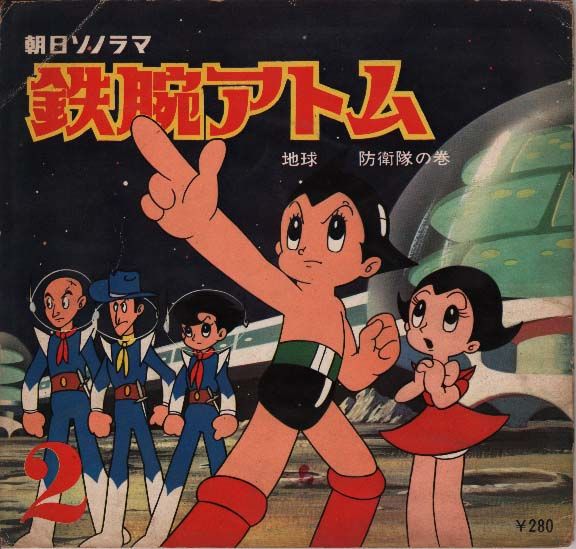
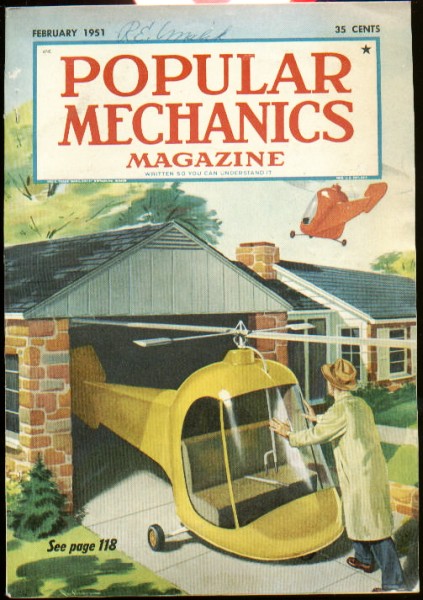
(It's funny how much of the "I was promised a flying car / personal jetpack" idea really comes from one particular magazine: Popular Mechanics, and not even the articles, just the cover illustrations. Hey remember in 2000 when we used to joke "It's the year 2000, where's my flying car???" That joke is 20 years old now. Kids today do not, in fact, remember ever having been promised a flying car.)
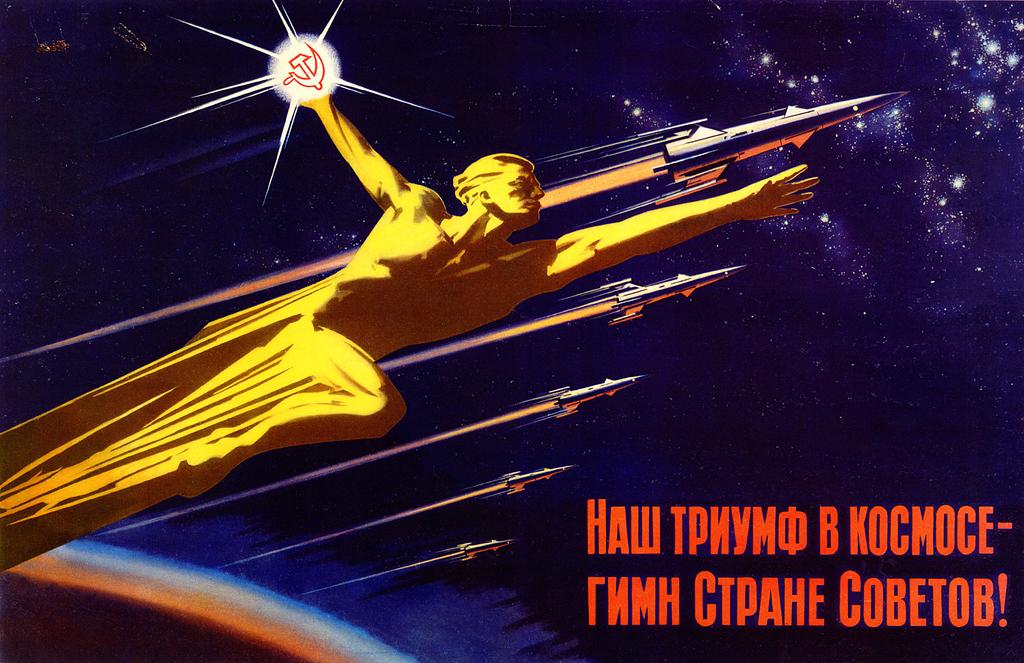
(dang, these Soviet space posters had fantastic graphic design didn't they? probably because the USSR's best artists had no choice but to work for the government)
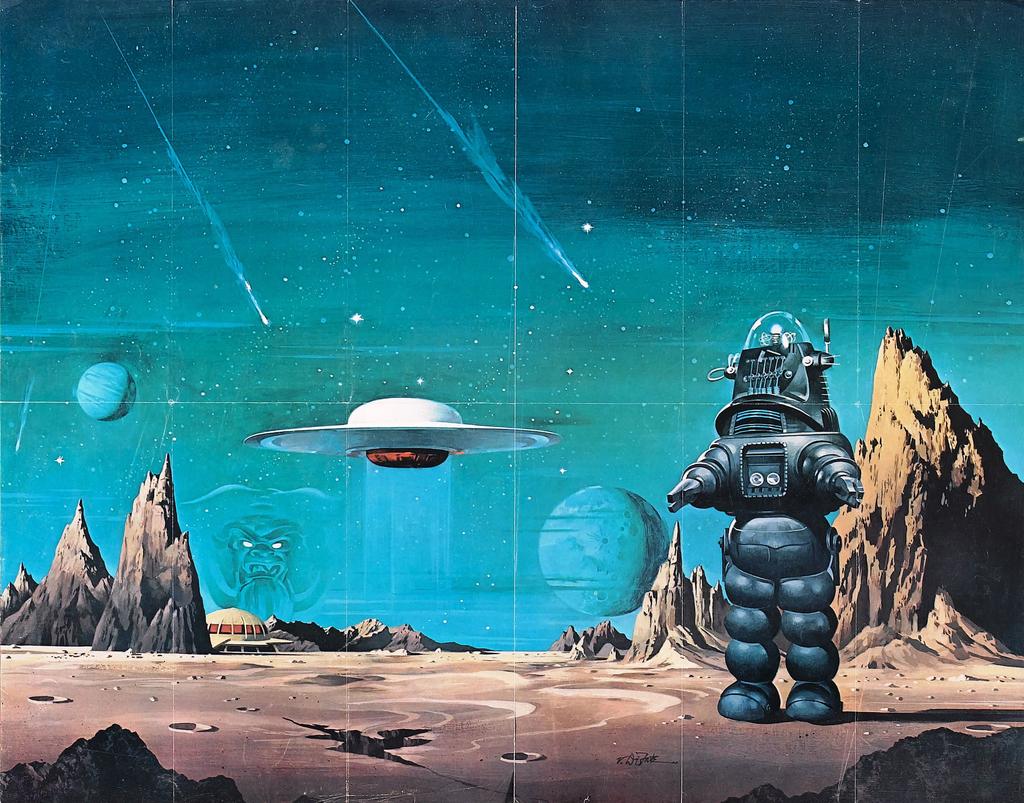
The "original draft" Future was: humans will travel to other planets, invent robots, build spaceships and space colonies, meet aliens, explore, expand, exploit, and, uh, stand in a lot of dramatic poses pointing vaguely upward, apparently.
Obviously that didn't happen. Turns out that manned space exploration was a historical blip only made possible by the Cold War drive to outspend the other team, there are no resources in space valuable enough to be worth the cost of bringing them back, and there are no other life-supporting planets a human can reach before dying of old age.
So that was kind of depressing. But it's OK because by the 90s we had a...
Replacement Future!
Instead of Star Trek, it looked like this:
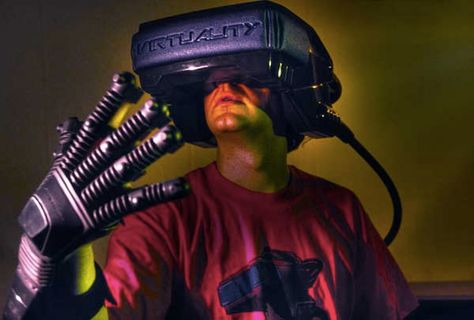
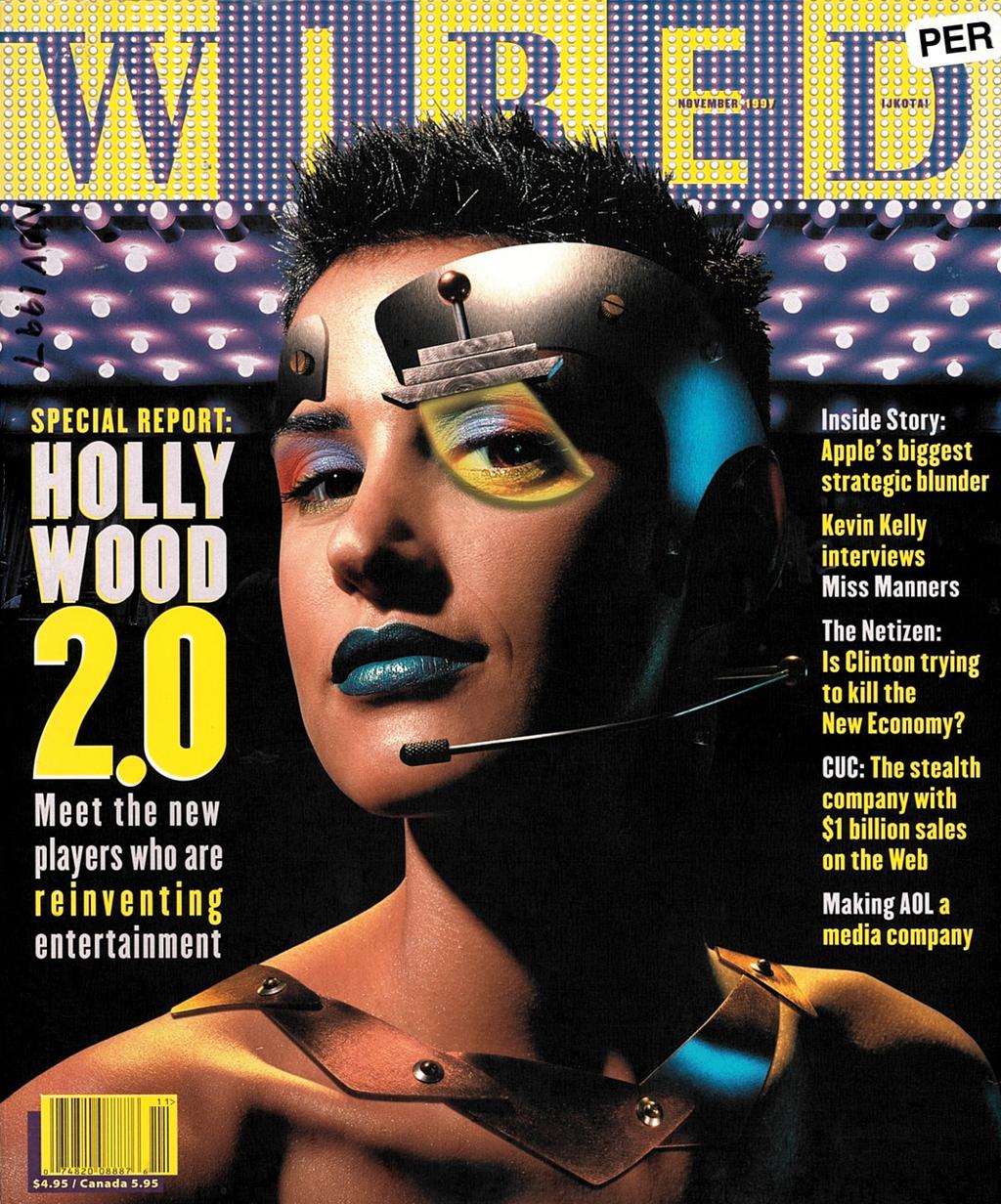
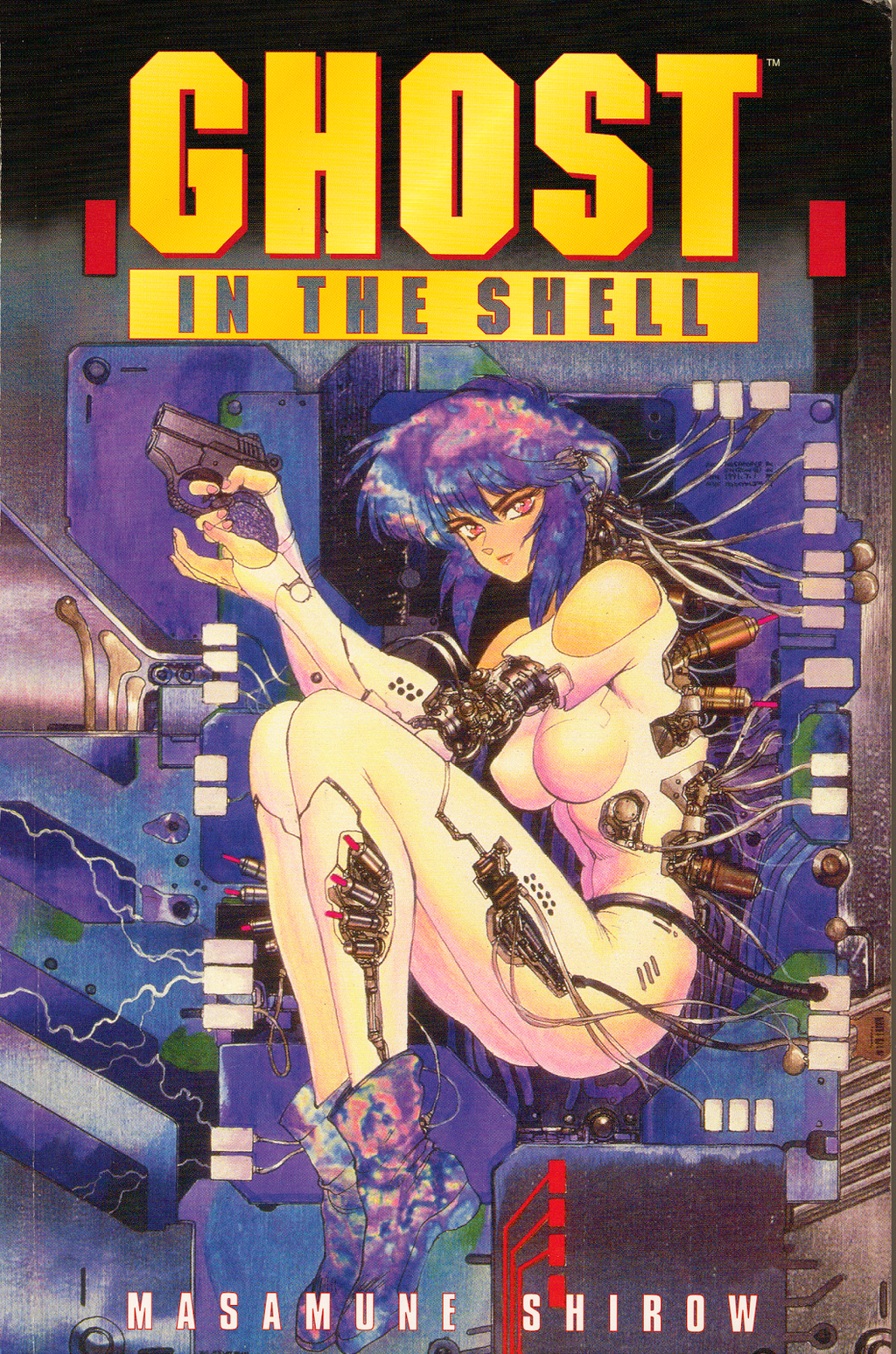

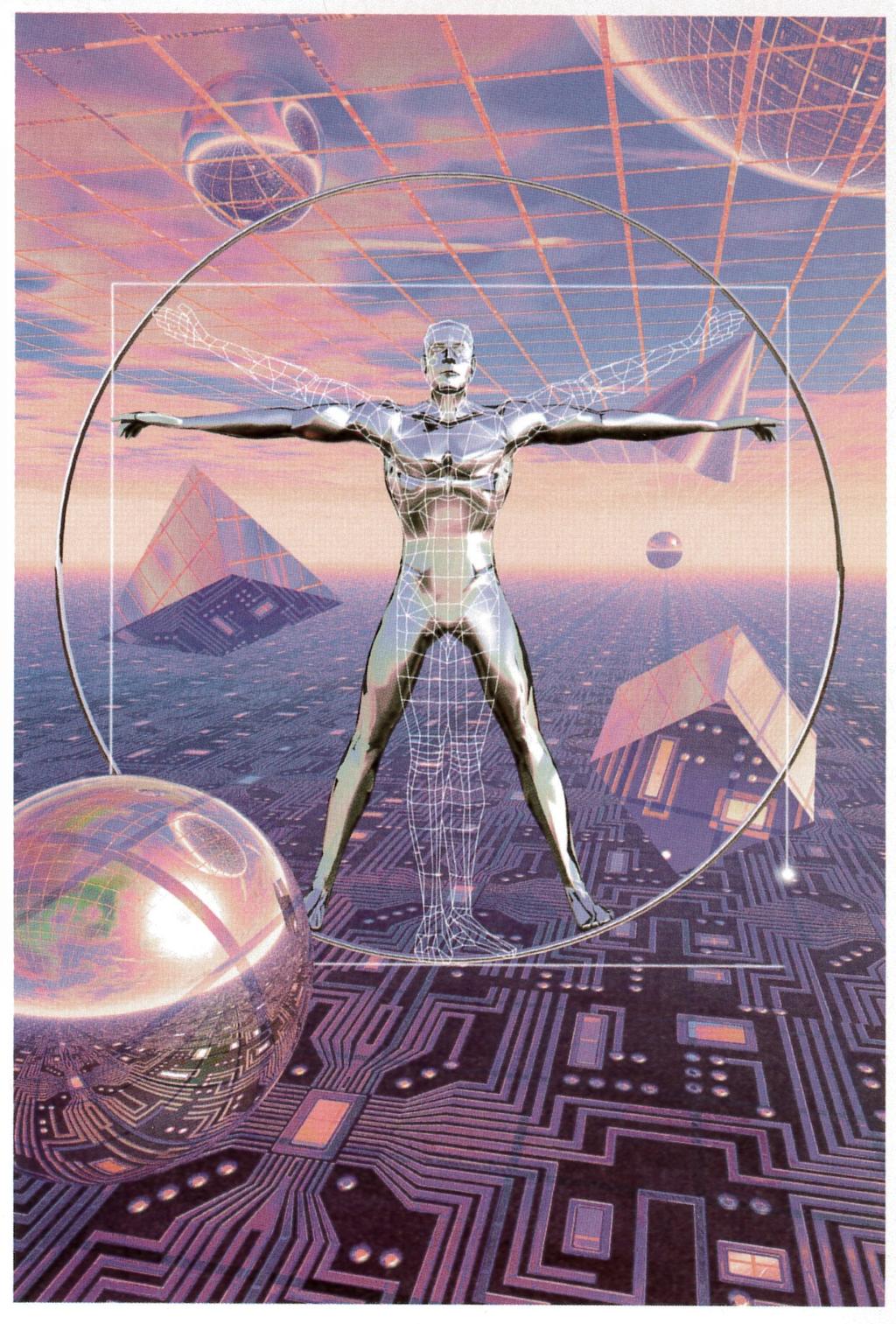
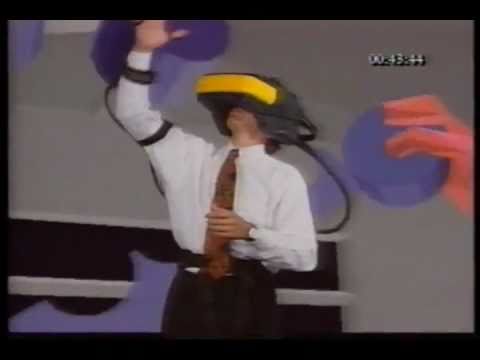
In the replacement Future, people will merge with technology to become cool, powerful cyborgs. (Which apparently means having a bunch of electronic stuff glued to our faces) Virtual reality will let us physically enter inside of the Internet and become omniscient beings of pure thought. Or something. (we're not sure what the Internet is yet, exactly, but it definitely involves a lot of reflections in shiny chrome spheres and a lot of circuit-board patterns laid out like cities.)
And that didn't happen either, did it? It's 2020 already, if I was gonna be a cool cyborg hacker with a buff, naked, chrome, virtual body, it probably woulda happened by now.
"BUT WAIT, NINDOKAG!"
, you say. "I am reading this, your Webbed Page, via the actual Information Super-highway! Perhaps I'm reading it on a touch-screen device, which fits in my pocket, and contains 100x more computing power than the entire Apollo Program commanded! Behold, I can press a button and summon a driver! So powerful! So futuristic! Not like the old days when I would have had to use the phone feature of my phone and call the number of a taxicab company!"
(everybody who still clings to the idea of technological progress uses the same dumb example about their iPhone having more compute power than the moon landing; it's extremely predictable because once you get away from iPhones there's almost nothing to brag about)
In an upcoming post I will dig deep into the reasons why progress on computer/internet technology ground to a complete halt in the 2010s, and how the hacker dream was quietly buried under the wall-to-wall carpeting of a Bay Area cubicle farm selling your data to the advertising industry.
For now, suffice to say: the computer revolution is over, and we lost. The only part of the replacement Future that came true is the all-powerful multinational corporate monopolies and their system of near-total surveillance. We have the villains of cyberpunk with none of the counterbalancing positives.
So when I ask:
Where did The Future go?
there's a double meaning. First, "why is the actual 2020 so much crappier than the 2020 we imagined in 1990".
And second, "what vision of The Future do we have in 2020, to replace it with?"
I'm not asking "Where's my flying car" (flying cars would be insanely energy inefficient) so much as I'm asking "Where is the idea that in 2020 fills the role that the idea of the flying car had in 1960".
If I ask 2020 what the future looks like, I'm more likely to get one of these:
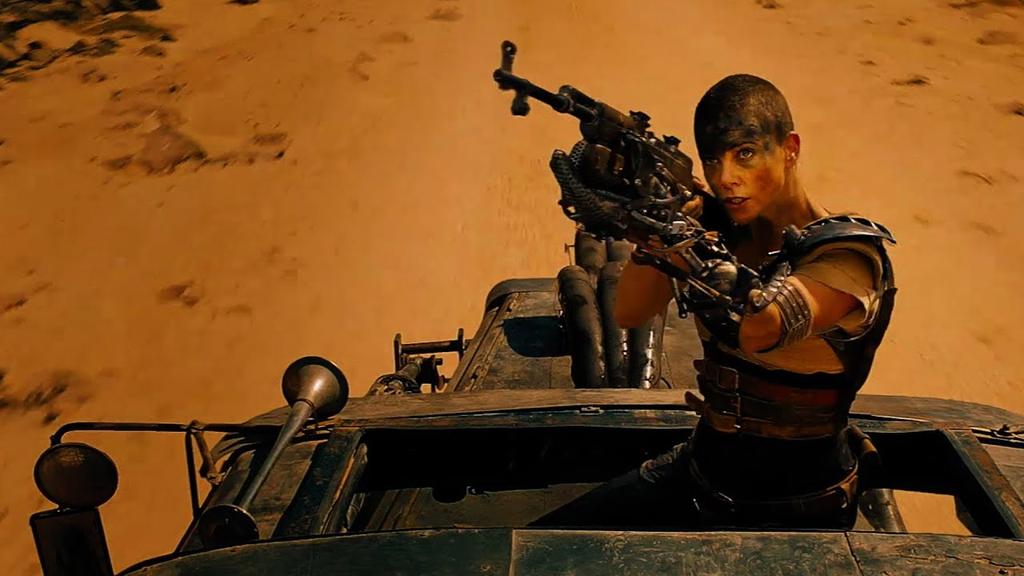

environmental devastation, brutal inequality, future-fascism, future-feudalism, future-slavery, scarcity, life-is-cheap grim survival... those are visions of the future but not of The Future, if you will. There's nothing to look forward to.
(Not that I don't love Fury Road and Hunger Games, they're both good! I'd nominate Hunger Games, books more than movies, as the most relevant popular sci-fi of the decade: it's a post-apocalypse AND a dystopia, it's about inequality, surveillance, and media manipulation... but that's another blog post.)
My assertion is that there's currently nothing in pop culture that even attempts to present a positive/livable future for humanity that's extrapolated out of the present.
(Star Wars? A fairy tale, explicitly. There's a new Star Trek? A new thing with Star Trek in the name, at least? But that's a ... fossil future. Outdated. Not extrapolations from today's reality, but a recycling of iconography from a 60s extrapolation.)
Science fiction works in a lot of modes; the apocalyptic and dystopian modes are much more about present anxieties. They're "dreadful warnings". Whereas the extrapolative mode, the one missing from our current diet, is more about inspiring us with something to work towards. Ideally you'd have both as part of This Balanced Breakfast. Making a lot of apocalypses and dystopias and not presenting any alternative to them is... after a point it starts to look like our culture is endorsing them, simply via the repeated implication that there's nothing else.
Surely nobody actually wants the apocalypse to come... or do we?

